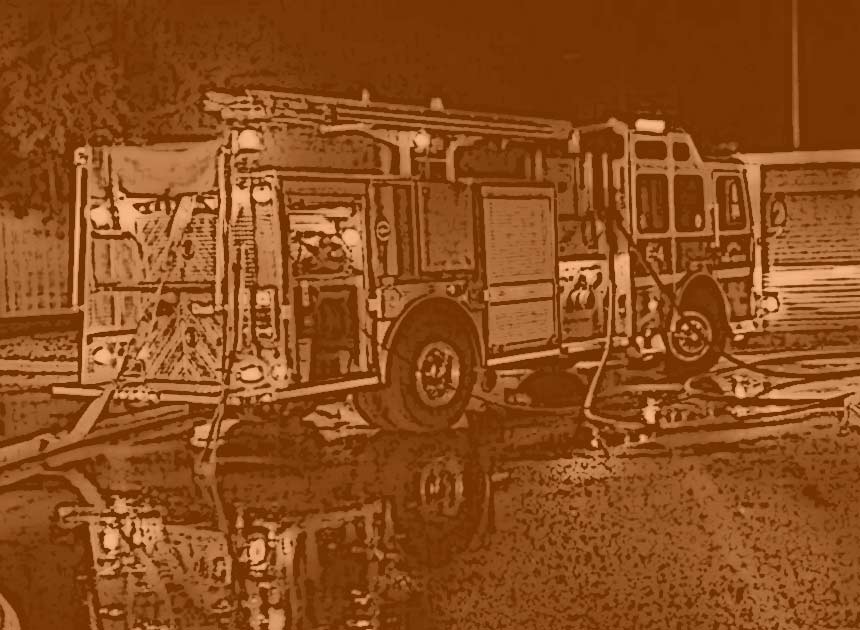
By James P. Moore
After two years of running the Illinois Fire Service Institute’s (IFSI) Resiliency Project, I have learned a lot about mental health, resiliency, and myself. I recently met with a fire chief who wanted to discuss bringing in IFSI to “educate his firefighters on how to be more resilient, because these guys are not as tough as we were.” This statement is one that I have heard before, but this time it had some bite behind it.
RELATED
First Responder Mental Health: A Chief’s Perspective
Living with PTSD: A Wife’s Side of the Story
The Impact of Mental Health Stigma in the Fire Service
PTSD: Don’t Move Next to an Airport and Complain About Airplane Noise
I inquired with the chief about his goals and expectations for the Resiliency Development Training. He responded, “I don’t need that resiliency stuff, but my firefighters do.” As we spoke, I sensed that the chief was uncomfortable with the topic of mental health, which reminded me of myself before I was asked to lead the Resiliency Project for IFSI and learned more about it and me. It was at this point that I was able to connect with the chief in a discussion on the stigma of mental health amongst firefighters of all ranks. He quickly acknowledged that he did not want to be seen as “soft” if he accepted this message, but want the firefighters to do better than him.
With that, the chief and I spoke in detail about the IFSI Resiliency Development Training as detailed below, along with the chief’s response.
Intent: IFSI and its instructors are all committed to working to normalize the topic of resiliency and mental health among first responders. The IFSI Resiliency Development Training is meant to positively impact the health, and resilience of every first responder that is willing to listen and learn. This training is designed to give first responders some knowledge, some things to think about and consider. It is meant to open their eyes to some realities that haven’t always been safe or accepted to discuss.
Chiefs Response: “It sounds good, but I am not sure that I have the time for all of this.”
Objectives: The IFSI Resiliency Project has many objectives so we discussed each of the general areas covered within our four-hour presentation/discussion, as listed below:
- Resiliency.
- Nervous system and resiliency.
- Connection between resiliency and mental health.
- Stress response
- Suicide
- Post-traumatic stress
- Post-traumatic stress disorder (PTSD)
- Relationship between suicide, stress, post-traumatic stress, and PTSD
- Supporting your OWN resiliency
- Supporting the resiliency of the group
Chiefs Response: “That’s a lot of information to be covered in four hours. I like that you are addressing the stress response, because some of my firefighters tend to tighten up on some calls.”
Presentation Format: The IFSI Resiliency Project is presented via a four-hour interactive discussion with Instructors presenting the curriculum and facilitating each student’s journey of self-awareness through an IFSI designed Resiliency Workbook. Each student is encouraged to be honest and reflective on their own mental health and resilience.
Chiefs Response: “And you get firefighters to be honest and reflective? It seems to me that they are taking a risk of being seen as vulnerable.”
RELATED
I’m a Firefighter with PTSD…Now What?
PTSD: Calling the Psychological Mayday
Addressing Internal Conflict to Understand Suicide
At this point I asked the chief what was one of the most important assets on his fire department, to which he gave the predicable and correct answer that his people were his most important asset. We then discussed that he needs to put action behind his words and work to remove the stigma of mental health in his department by him demonstrating that it is safe to talk about mental health and resiliency with one another.
After some protected discussion, the chief agreed and welcomed us to present that IFSI Resiliency Development Training at his fire department. During our four-hour presentation/discussion, the actions of the chief—who displayed the courage of talking about some of his own challenges—made it safe for others in the room to open up and start to change the stigma of mental health in the fire service. After the training was completed, I complimented the chief on his willingness to share his challenges and the leadership he demonstrated during this training. He thanked me and said, “Well JP, I guess I was wrong. I do need that resiliency stuff as much as my firefighters do.”
Well done, chief!
JAMES P. MOORE, a 35-year veteran of the fire service, is the assistant director for leadership development and command programs for the University of Illinois Fire Service Institute. Moore is the co-chairman of the Office of the State Fire Marshal–Fire Officer State Certification Advisory Committee and vice president of the Illinois Fire Chiefs Association Education and Research Foundation. Previously, Moore was the fire rescue chief/ emergency manager of the Crystal Lake (IL) Fire Rescue Department for more than nine years and worked for 21-plus years in the Naperville (IL) Fire Department. `He has an M.S. degree in management and organizational behavior from Benedictine University, a Baccalaureate degree in fire service management from Western Illinois University, and an associate degree in fire science technology from the College of DuPage.

